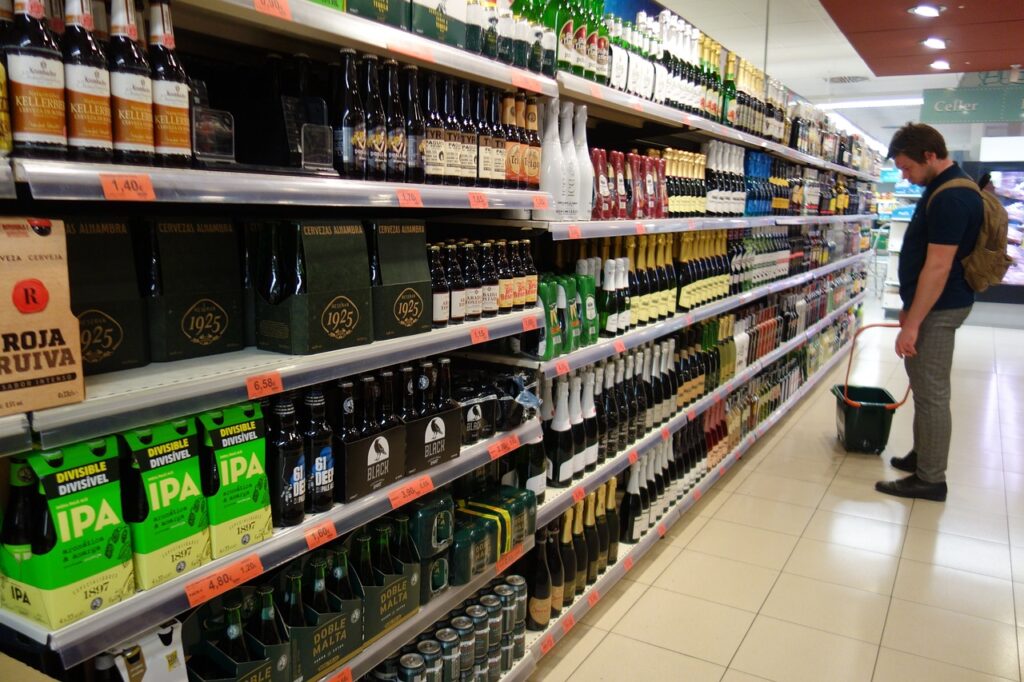Trudeau’s escalator tax on alcohol
If the excise tax increases in line with the 2023 Consumer Price Index (CPI), Canadians will have to pay an additional 4.7% tax on spirits, wine, and beer, far beyond current government targets for inflation.

Constituents have already been raising concerns about the upcoming increase to the tax on alcohol that the Liberals established shortly after being elected in 2015. This annual hidden tax has resulted in an overall tax increase on alcohol of almost 20% so far and, as of April 1st, that could jump significantly.
If the excise tax increases in line with the 2023 Consumer Price Index (CPI), Canadians will have to pay an additional 4.7% tax on spirits, wine, and beer, far beyond current government targets for inflation.
Stakeholders have requested that, at a minimum, the excise tax be capped at 2%, to allow time for the CPI to better align with normal inflation rates and government targets.
Stephanie and her Conservative colleagues have actually raised this in the House of Commons numerous times. They have asked Justin Trudeau to at least consider postponing these specific tax hikes on several occasions (bolded below), given how many Canadians continue to struggle as a result of the pandemic, but he refused. Some of those interventions can be found at the links below.
As an example of some of the many ways they have tried to help ease the tax burden on Canadians, Conservatives have called on the Liberal government to:
Þ That, given that the carbon tax has proven to be a tax plan, not an environmental plan, the House call on the Liberal government to cancel the April 1, 2024, carbon tax increase. (Feb 1, 2024)
Þ That the amendments by the Trudeau-appointed Senators which effectively gutted C-234 (an act to remove the carbon tax for farmers) be removed (Jan 29, 2024)
Þ That, given that the government has announced a “temporary, three-year pause” to the federal carbon tax on home heating oil, the House call on the government to extend that pause to all forms of home heating. (Nov 2, 2023)
Þ That the House “call on the government to introduce legislation within seven days of this motion being adopted, to repeal all carbon taxes to bring home lower prices on gas, groceries and home heating.” (Sep 28 2023)
Þ Cancel the carbon tax on food inputs and production (Dec 8 2022)
Þ Exempt home heating fuel from the carbon tax – (Oct 20 2022)
Þ Eliminate the plan to triple the carbon tax (Sept 27, 2022)
Þ Suspend the carbon tax (June 7, 2022)
Þ Present a federal budget with no new taxes (March 31, 2022)
Þ Postpone the 2021 increase of the carbon tax (and the alcohol escalator tax) (Dec 7 2020)
Þ Repeal the carbon tax (June 18, 2019)
Þ Eliminate the carbon tax on fuel (June 7, 2019)
Þ Promise not to further raise taxes (February 4, 2019)
Þ Eliminate the carbon tax (Dec 4, 2018)
Þ Provide details on how much the proposed carbon tax will cost Canadian families (June 14, 2018)
Þ Cancel plans for new taxes (June 8, 2018)
Þ Provide data used by government to develop Budget 2018 which would indicate how much the federal carbon tax will cost Canadian families (June 1, 2018)
Þ Specific request for: “ the Department of Finance’s documents titled “Impact of a carbon price on households’ consumption costs across the income distribution” and ”Estimating economic impacts from various mitigation options for greenhouse gas emissions,” and any other documents that calculate the cost of carbon taxes on Canadian workers, businesses, and families.” (Feb 23, 2017)
Unfortunately, Mr. Jagmeet Singh continues to instruct his NDP caucus to prop up Justin Trudeau’s minority government and they work together to defeat all these attempts to save you money.